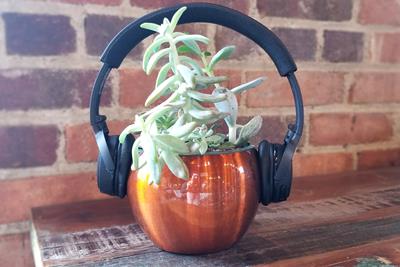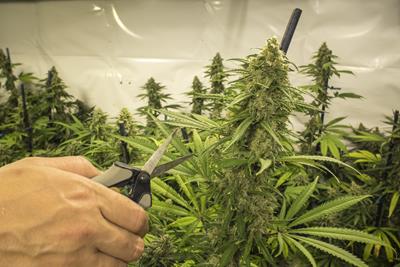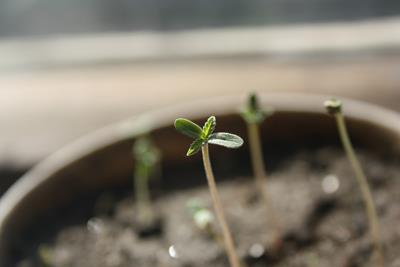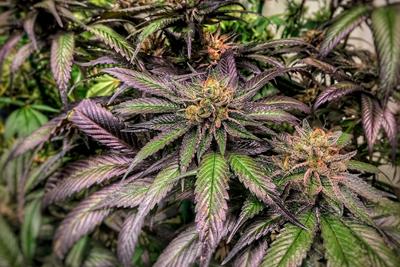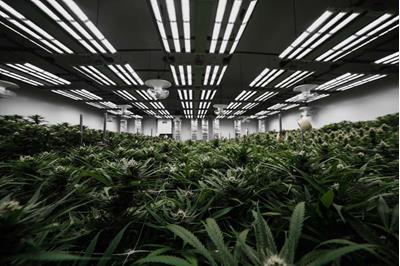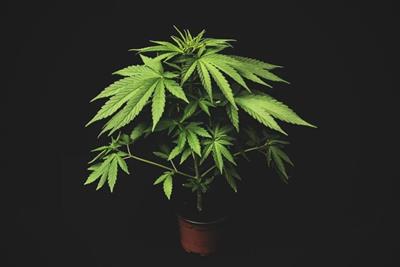
Wednesday March 9, 2022
By Paul Barach
 Growing
Growing
For part 2 of our Growing Weed in Washington series, PotGuide sat down with Mike Stafford of Sweetwater Farms to learn about how to create the best living soil, how to tell good weed from the ashes, and the legacy of an old chicken farm.
Sweetwater Farms is an indoor cannabis grow located in Cheney, Washington, in the flat, central eastern part of the state closest to the Idaho border. They’ve been producing small batch, organically grown cannabis since 2015.
An Interview With Sweetwater Farms
[Paul Barach]: What is it like growing weed in Washington? Why did you pick Cheney?
[Mike Stafford]: We needed a lot of space for our indoor grow, which is a retrofitted Chicken Farm. I have friends in this area that are older – they all remember working at this chicken farm back in the 60s and 70s. It was everyone’s first job whenever they got old enough to work. (Laughs)
I stripped the place down, framed it in, built in separate, self contained rooms, and it’s worked great for years. I keep our indoor facility dialed in…70-75 degrees in my rooms at all times, and the humidity down to 30-35%. …The way that the rooms are built, I can customize the environment to make sure that every strain that we plant will do the best that we can.
The weather is pretty gnarly. It gets cold quick and it takes a long time for it to warm up. Anything you plant out here that’s not in a greenhouse, it’s not gonna finish.
[PB]: Do you have any special growing practices that you use?
[MS]: We are full-on organic farmers. We grow our plants in living soil that we reconstitute and reuse to make our grow as renewable as possible. I’d love to see the industry go in this direction.
[PB]: How do you reconstitute your living soil? Walk me through the process.
[MB]: First we cut down a plant after it’s gone through its whole life, kick the soil out of the pots into one big pile, and right then is when it starts to break down. Then we buy around 10,000 worms at a time, put them in the soil, and reinoculate it with different types of beneficial bacteria and fungi. That breaks down the previous root balls and stalks. Then I’ll put a little bit of our liquid nutrients on it.

We have different piles of soil here that are in different stages of decomposition. After two months, the soil’s ready to replant our next round of plants in.
[PB]: What difference does that make in the weed you grow?
[MS]: I think we grow the best organic weed in the market. A lot higher terpene results from growing naturally…Organic inputs and organic regiments give you a cleaner product with a better smell and flavor. There’s also less harsh smoke. All of our product burns away to white ash. No black residue left in your pipe.
[PB]: What weed strains are you most hyped about growing?
[MS]: I love Raspberry Bellini, our Pink Runtz is amazing. Primus…it’s not new, but it’s always been one of my favorites. We have a new phenotype of Huckleberry that I’m stoked about. Our Slap n’ Tickle, and Slapping the Grape are both exciting. We have so many, we’re trying to narrow it down right now (laughs).

[PB]: What in your opinion sets Washington weed apart?
[MS]: I think that Washington has a love for craft cannabis. We do have a couple big boys out here, but there are also a lot of “Mom and Pop” craft grows still making it that would have been weeded out in other places.
Washington loves its weed (Laughs) I think the people in Washington want good weed and appreciate when people put the time and effort into growing it. I like to hope so anyway (Laughs).
Thanks for chatting with PotGuide!



